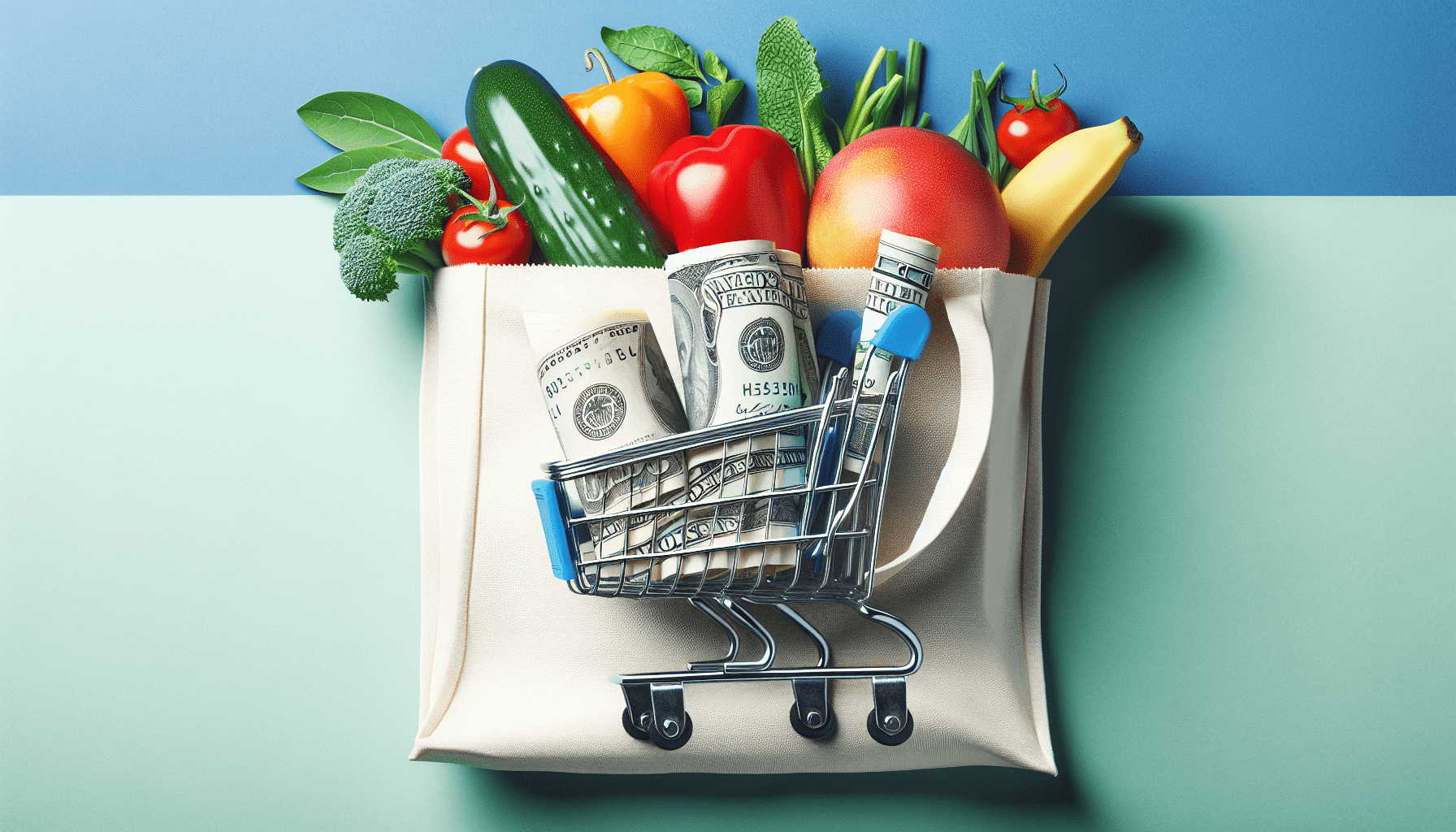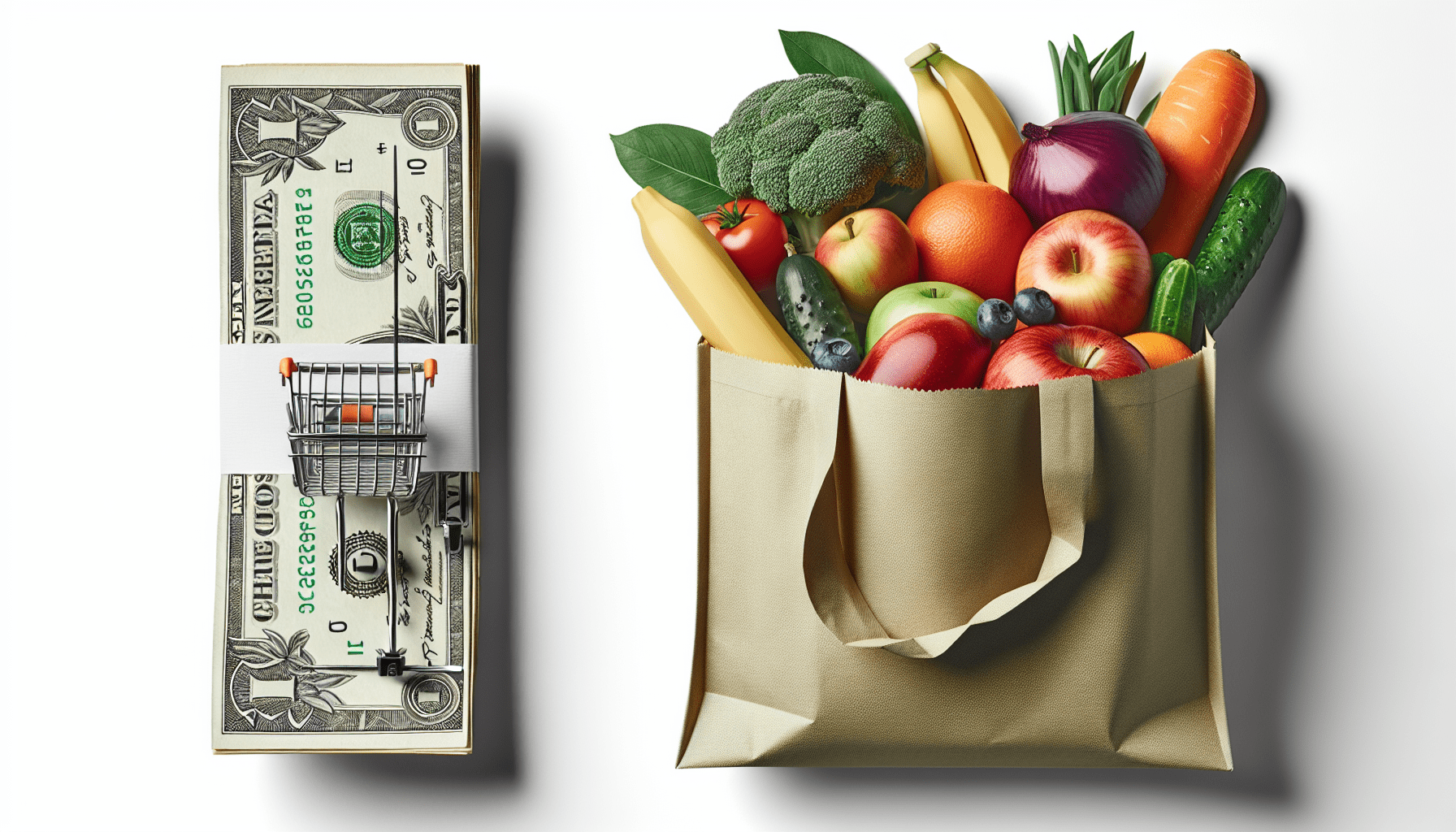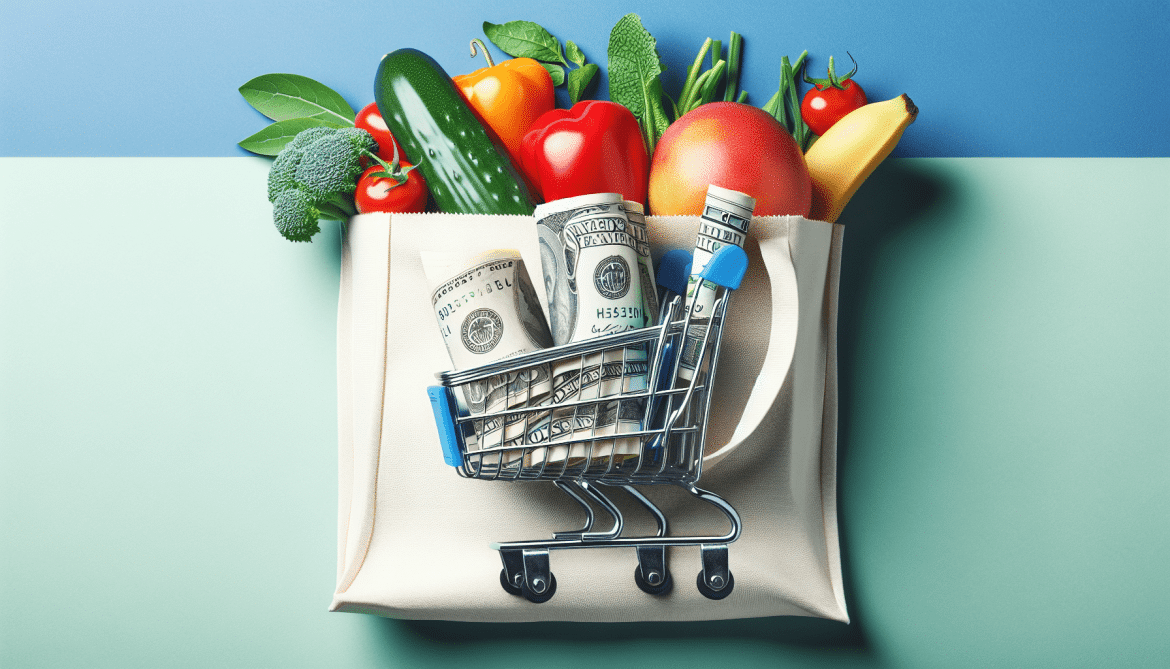Are you looking for ways to save money on your monthly grocery bill? Look no further! In this article, we will share some helpful techniques that will allow you to incorporate grocery savings into your monthly budget. By implementing these strategies, you will be able to stretch your dollars and make your money go further at the grocery store. Say goodbye to overspending and hello to smarter shopping!
1. Set a grocery budget
Determine your monthly grocery budget
Setting a grocery budget is an important step in managing your finances effectively. To determine your monthly grocery budget, assess your overall expenses and income. Consider your financial goals, such as saving for a vacation or paying off debt, and allocate a suitable amount for groceries. It's important to strike a balance between your nutritional needs and your budgetary constraints.
Track your grocery spending
Once you have established your monthly grocery budget, it is crucial to track your spending meticulously. Keep receipts or use a budgeting app to record every grocery purchase. This will enable you to identify any areas where you may be overspending and make adjustments accordingly. By monitoring your expenses, you can stay accountable to your budget and make informed decisions about your grocery shopping.
2. Plan your meals
Create a weekly meal plan
Meal planning is a fantastic strategy to streamline your grocery shopping and save money. Take some time each week to plan your meals ahead of time. Consider the dietary needs and preferences of your household members. Take stock of ingredients you already have and plan your meals around them. Create a balanced and varied menu that includes affordable yet nutritious options. This way, you can minimize food waste and make the most of your grocery budget.
Make a shopping list based on meal plan
Once you have your weekly meal plan in place, make a shopping list based on those meals. Jot down all the ingredients required, including quantities. This will help you stay organized and focused while shopping, ensuring you only buy what you need. By avoiding impulse purchases and sticking to your shopping list, you can prevent unnecessary expenses and stay within your budget.
3. Shop with a list
Stick to your shopping list
One of the most effective ways to save money on groceries is by sticking to your shopping list. It can be tempting to veer off course and make impulsive purchases when wandering the aisles of a grocery store. However, by following your predetermined list, you can resist the urge to buy unnecessary items and stay within your budget. Stay disciplined and remind yourself of your financial goals.
Avoid impulse buying
Impulse buying can quickly derail your efforts to save money on groceries. To avoid falling into this trap, it's important to develop strategies that help you resist the temptation. One effective method is to shop with a plan and avoid visiting the grocery store when you are in a rush or feeling hungry. Additionally, try to stay focused on your shopping list and remind yourself of the financial benefits of sticking to it.
4. Compare prices
Shop at multiple grocery stores
Shopping at multiple grocery stores can help you find the best prices for the items on your shopping list. Different stores have varying pricing strategies, promotions, and discounts, so exploring different options can result in significant savings. Consider visiting a nearby discount store or purchasing certain items from a local farmer's market. By diversifying your shopping destinations, you can take advantage of the best deals available.
Use price comparison apps or websites
In this technologically advanced age, there are numerous price comparison apps and websites available that can help you identify the best deals on groceries. These platforms allow you to compare prices across various retailers and make informed purchasing decisions. Take advantage of these resources and utilize them to find the most affordable options for the items you need.
5. Use coupons and discounts
Clip coupons from newspapers or online sources
Coupons are a tried-and-true method of saving money on groceries. Clip coupons from newspapers, magazines, or online sources and keep them organized in a coupon binder or folder. Pay attention to expiration dates and utilize coupons for items you regularly purchase. This simple habit can lead to substantial savings over time.
Take advantage of store loyalty programs
Many grocery stores offer loyalty programs that reward frequent shoppers with discounts, special promotions, or even free items. Take the time to sign up for these programs and make sure to scan or provide your loyalty card during each purchase. By doing so, you can unlock exclusive savings and maximize the value of your grocery shopping.
6. Buy generic or store-brand products
Compare generic and brand-name prices
Generic or store-brand products often offer the same quality as their branded counterparts at a significantly lower cost. When shopping, compare the prices of generic and brand-name products to identify any substantial price differences. In most cases, you will find that opting for the generic version can save you a significant amount of money without sacrificing quality.
Try out generic products to find affordable alternatives
Don't be afraid to try out generic products to find affordable alternatives. Many times, you may find that generic products are just as good, if not better, than the branded versions. Experiment with different options and stick with the ones that meet your expectations while offering more value for your money. Over time, you will be able to identify a list of trusted generic products that can save you money on a regular basis.
7. Purchase items in bulk
Buy non-perishable items in bulk
Buying non-perishable items in bulk can lead to significant savings. Items such as canned goods, rice, pasta, and cleaning supplies have a long shelf life and are often available in larger quantities at lower prices when bought in bulk. Not only does this save you money, but it also reduces the frequency of your shopping trips and ensures that you always have essential items on hand.
Consider joining a wholesale club
Wholesale clubs, such as Costco or Sam's Club, offer a wide range of products at discounted prices for their members. Consider joining a wholesale club if you have a large family or require items in larger quantities. While there may be an annual membership fee, the savings you'll enjoy on bulk purchases can easily offset this cost.
8. Shop for sales and markdowns
Check weekly circulars and online advertisements
Stay on top of the latest sales and markdowns by checking the weekly circulars of your local grocery stores and browsing their online advertisements. These promotions often feature discounted prices on popular items, allowing you to stock up on essentials at a lower cost. Plan your shopping trips around these sales and take advantage of the lowered prices.
Look for clearance or discounted items
Grocery stores often have clearance sections or shelves dedicated to discounted items. These can include products nearing their expiration dates or items that have slight packaging damage. It's essential to check these sections during your shopping trips as you may find hidden gems at significantly reduced prices. Just make sure to check expiration dates and assess the quality of the discounted items before purchase.

9. Avoid shopping when hungry
Eat before going to the grocery store
Shopping on an empty stomach can lead to impulsive purchases and ultimately inflate your grocery bill. Before heading to the grocery store, make sure to eat a satisfying meal or snack. By doing so, you'll be less tempted by the sight of delicious but unnecessary items, allowing you to stay focused on your shopping list and save money.
Avoid buying unnecessary items due to increased appetite
When hungry, it's natural for our cravings to take over our rational decision-making. Avoid buying unnecessary items by recognizing the influence of increased appetite on your shopping habits. Stay disciplined and remind yourself of your grocery budget and financial goals. By resisting the urge to splurge on unnecessary items, you can maintain control of your spending and maximize your savings.
10. Keep track of expiration dates
Organize your pantry and fridge
Maintaining an organized pantry and refrigerator is crucial in preventing food waste and unnecessary expenses. Regularly check your products and pay attention to expiration dates. Store items with the earliest expiration dates towards the front, ensuring that they are used before they spoil. Keeping your pantry and fridge organized will help you avoid purchasing duplicate items or letting food go to waste.
Rotate items to use older ones first
To minimize food waste and save money, adopt the habit of rotating your items. When unpacking groceries, place newer items at the back of your pantry or refrigerator and move older items to the front. By using older products first, you can ensure that nothing goes unused and reduce the likelihood of having to throw away expired food. This simple practice can stretch your grocery budget and promote a more sustainable approach to food consumption.
Incorporating these techniques into your grocery shopping routine can make a significant impact on your monthly budget. By setting a budget, planning your meals, shopping with a list, comparing prices, using coupons, buying generic or store-brand products, purchasing in bulk, shopping for sales, avoiding shopping when hungry, and keeping track of expiration dates, you can save money and make the most of every dollar spent on groceries. Remember, small changes in your shopping habits can lead to substantial savings over time. Stay committed, stay organized, and enjoy the rewards of a more financially savvy approach to grocery shopping.





